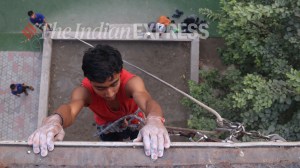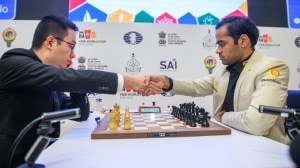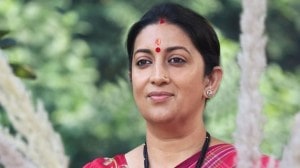Ruling party MPs heckle PM
NEW DELHI, May 16: The United Front Government wanted to score a politically correct point that it was very sincere about the Women's Reser...

NEW DELHI, May 16: The United Front Government wanted to score a politically correct point that it was very sincere about the Women’s Reservation Bill by bringing up for consideration on Friday. But it did not reckon with the wreckers from within its own ranks a substantial number of Janata Dal members from Bihar. It appeared as though the inner squabbles of the Janata Dal and of the United Front partners had come out into the open on the floor of the House.
The virtual revolt by ruling Janata Dal members was led by their working president Sharad Yadav. The House witnessed the unprecedented phenomenon of a Prime Minister being prevented by his own partymen from piloting a bill.
While I K Gujral’s direction to his party back-benchers to resume their seats went unheeded, the Speaker’s appeal to members of the Muslim League, the Samta Party and the ruling Janata Dal also failed to have any impact.
The Government brought up the women’s reservation bill for consideration after 3 pm on Friday, the last day of the Budget Session, for discussion in the Lok Sabha. The time available for discussion on the bill was about 28 minutes because Friday happens to be the day of Private Member’s bills, which the members hold on to with understandable zeal. Of course, it was understood that once Prime Minister Gujral made the initial statement while moving the bill, further discussion would continue in the next session.
It was this very prospect of open discussion in the House which raised the hackles of a large section of the Janata Dal members, of Nitish Kumar (Samata Party) and of G M Banatwala (Indian Muslim League). They wanted to stall the moving of the bill under the pretext that an important and controversial constituional Amendment Bill like that of legislation on women’s reservation should not pushed through in a cavalier fashion.
But that was only a pretext, because it was quite clear that the bill had not come to the stage of being passed by the House. Speaker P A Sangma had made it quite clear time and again during the noisy stalling of the proceedings that members could move any amendment they wanted during the discussion. There was palpable fear, resentment, which in turn led to dogged resistance on the part of a significant section of of the Treasury Benches at the prospect of discussing the women’s bill in the open. Yadav, Kumar and others seemed to perceive a conspiracy of upper class and upper caste women in trying to push through the bill.
However, Yadav and Kumar had no answer to the points made by Atal Behari Vajpayee, the leader of the Opposition, and of Somnath Chatterjee (CPI-M), who told the agitated members that they could express their reservations, their opposition to the bill, during the discussion. And they made the point that it was “undemocratic” not to allow a bill to be considered for discussion in the House.
The rub was that those who were opposed to the women’s reservation bill would have had to make their points on record during the discussion, and there would have been no place for backroom, anonymous lobbying. Not many of them would have liked to be seen as holding “politically incorrect” views in public. At one stage, former prime minister Chandra Shekhar suggested that a concsensus could be evolved outside the House in order to avoid the “trouble” inside. But Vajpayee and Chatterjee rejected it as a bad idea.The government, when it sought to move the bill was evidently harbouring the illusion that a broad consensus existed on the long-pending 81st Constitution amendment bill, which would reserve 33 percent of seats in the Lok Sabha and State Assemblies for women.
Sharad Yadav’s strident opposition to the Bill obviously took an embarrassed UF Government by surprise. Quite apart from the tone of his arguments, it was his entire attitude that was so revelatory. His implication that it was upper class and upper caste women who were the prime movers for reservation was aptly summarised when he declared that “baal kati mahila, mahila nahin hain” (women with short hair are not women).
The Speaker’s repeated entreaties to the agitated members that the bill had met with consensus were drowned out by shouts from JD, Muslim League and Samta Party members who claimed that they had not been consulted.
Prime Minister I K Gujral’s repeated attempts to explain the government’s position came to naught as he was repeatedly interrupted and shouted down by angry JD members. Finally Gujral abandoned his efforts and the Speaker decided that the matter would be further debated after the House dealt with the scheduled private members business.
When discussion on the reservation issue resumed, evidently some tough talking had been done. A suitably chastened Sharad Yadav expounded his arguments in more reasonable tones, but his objections that reservation for women belonging to Other Backward Classes (OBCs) within the women’s quota remained.
In the end, Sangma called on Khalap to move the bill for consideration in the House and with this complete, he adjourned the House sine die. Almost as if he did not want to take any chances, he immediately asked members to stand for the Vande Matram and friday’s tumultuous proceedings came to an abrupt end.




- 01
- 02
- 03
- 04
- 05



























